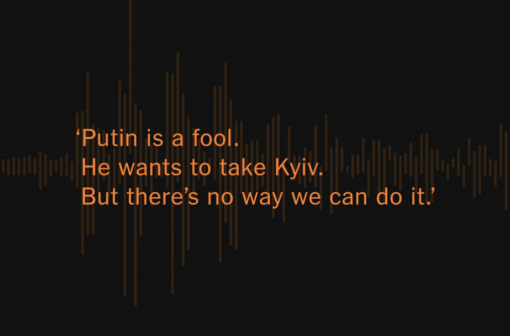It’s trite to call Russia’s actions in Ukraine these days evil. In their goal of bringing an entire country to its knees through military firepower, battered infrastructure, and a decimated power grid (in time for the cold winter ahead), they are certainly that. But they are an evil that calls for analysis and explanation.
That analysis, however, would have to cover a great deal.
For starters, it would have to explain how it is that Russians allowed their country to succumb to the belligerent authoritarianism of Putinism, and how enough of them came to either support Putin or to consider it imprudent or too costly to resist him. And how Putin himself transformed from the (seeming) pragmatic realism of his early presidency to the neo-imperial fantasies of today. And how the late Soviet power elite finessed its way into an oligarchic capitalism amenable to the consolidation of Putin’s power vertykal (and, conversely, how Putin coldly disemboweled any rival sources of power). And how his rise was built, from the get go, on the creation of external threats (Chechens, Georgians, “Nazis,” the “liberal” West) and assertive displays of disciplinary power to eliminate or neuter them.
And how Russians who were poised to follow in the footsteps of their fellow East Europeans by threading the needle (challenging as it was everywhere) between democracy and neoliberal entrepreneurialism on the one side, and the social safety net of socialism on the other, came to lose all faith in the former two and accept what scraps of the third were offered them. And how decades of Sovietization, the economic traumas of the 1990s, and the creeping authoritarianism of Putinism exorcised away any capacity among Russians to act collectively and politically in the face of any challenge (so unlike Ukrainians in that).
And of how Russia’s essential conservatism bounced back after 1990 with a vengeance, led by an apocalyptic church beholden both to its own hierarchic religiosity and to its deep historical entanglement with power (in this case, Putin’s). And of the unquestioned imperialism and colonialism at the heart of the Russian imaginary, in which Ukraine functioned only as a lesser, weaker brother liable to forget his allegiance to the imperial center and needing to thereby be reined in, repeatedly and by force if necessary. And of how the West, with its wealth, its progress, and its freedoms, became the ultimate foil for the Russian project and the ultimate object of its ressentiment.
And of how challenging the liberal West has become Russia’s modus operandi on the world stage, allowing it to find supporters (tacit or otherwise) in nearly every country in the world, and to repurpose its Soviet era security apparatus toward global informational warfare. And of how Russia’s oil and gas reserves — its only source of economic strength — has made it an attractive partner to other states with reason to distrust the U.S.-led West (such as Iran, Syria, and North Korea these days, but also China and India).
And of how all this leads to a situation where colossal miscalculations — such as the dubious assumption of a three-day military victory and an overwhelmingly welcoming Ukrainian population — will naturally arise, and where the internal logic of strongman authoritarianism, with its blinded judgment and its to-the-death dependence on victory, can only lead to the gory intensification of military might that we are seeing now, people’s lives be damned.
That’s for starters.



